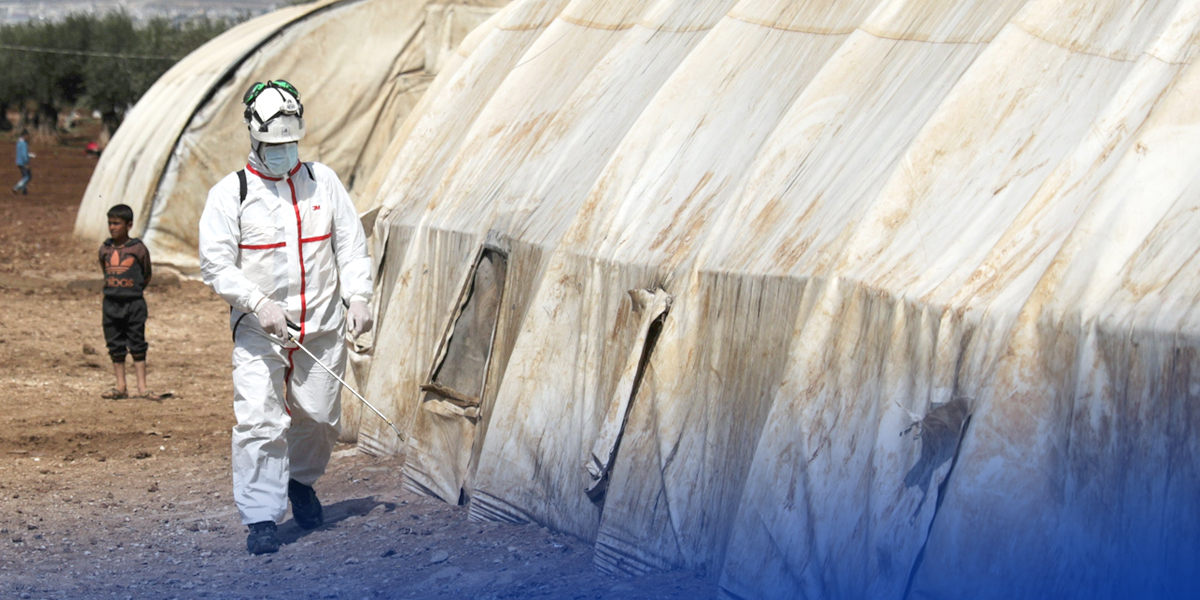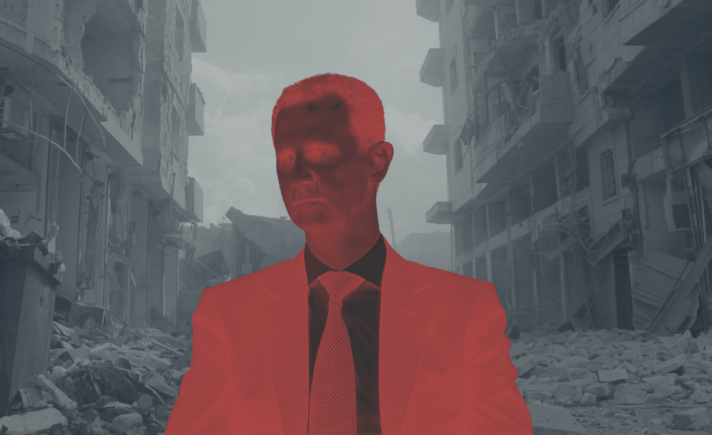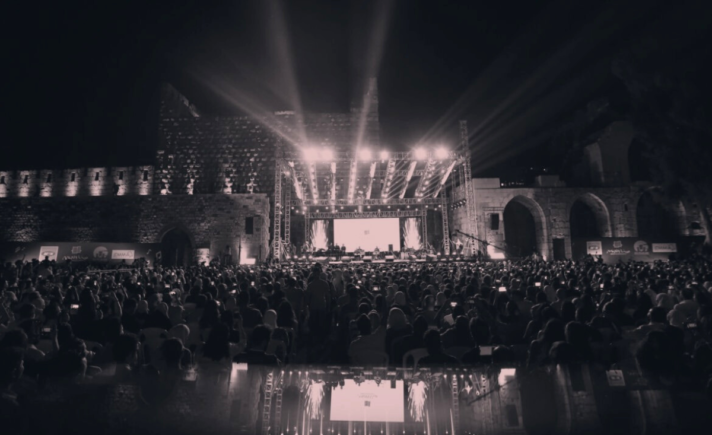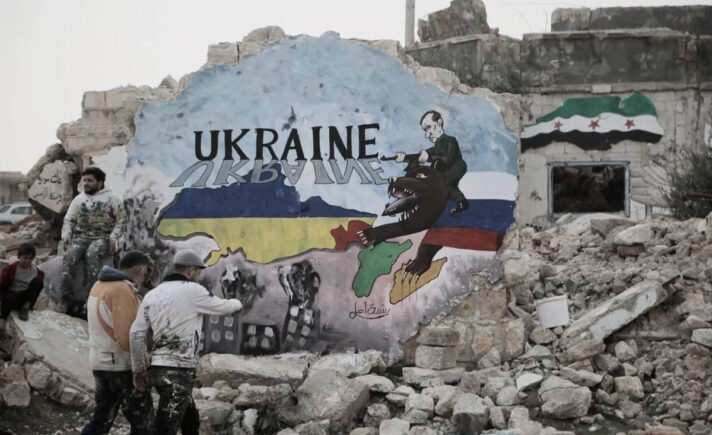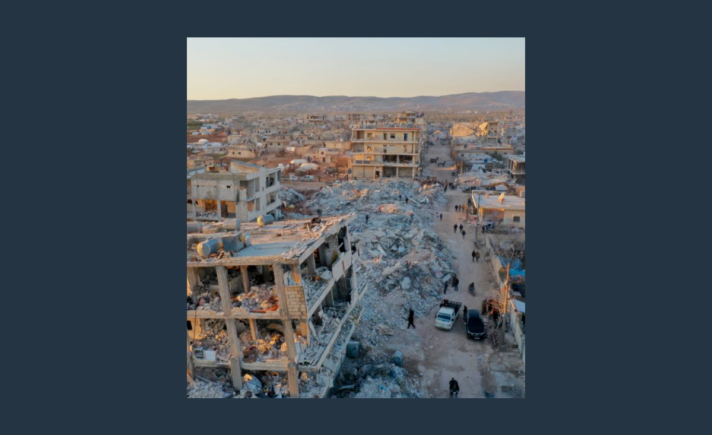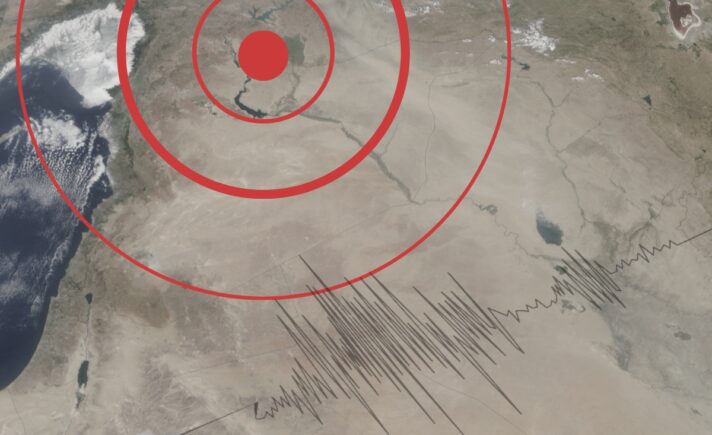With the decline in international NGO activity in Syria over the past two years, it has become necessary for local civil and youth initiatives to fill the gap. These improvised, often volunteer-based groups are now essential, indeed indispensable, especially when it comes to emergency responses requiring rapid action.
Funded by crowdfunding campaigns and donations, these groups have chiefly been preoccupied with the new waves of displacement caused by heavy bombardment in northern Syria since the start of this year, which have brought the number of internally displaced persons (IDPs) to over one million, according to the Syrian Response Coordination Group.
Today, however, a new emergency has emerged in the form of the Coronavirus, which officially arrived to Syria last month (though unconfirmed cases were already suspected well before the Assad regime’s announcement). Accordingly, the same volunteer groups have begun campaigns to prepare north Syria’s immensely vulnerable IDPs for a possible widespread outbreak, in light of the meager support provided to the local health sector and the lack of hospitals or medical centers capable of receiving infected patients. With roughly five million people living in dire conditions in areas outside regime control, it is all but impossible for them to implement proper home quarantine steps or take even basic measures to protect themselves from the virus, not least when international NGOs have provided only an estimated 3% of these people’s basic needs.
Among these newly-formed initiatives tackling Coronavirus is one that is still anonymous, as its members have not yet found time to come up with a name. They are a group of media activists offering an informative window onto the lives of Syrians inside the country, their living conditions, and their ability to take preventative measures against the virus. Dergham Hammadi, one member of the initiative, says their work began with a meeting to discuss ways to respond to what the Idlib Health Directorate has said may turn into “a dangerous catastrophe for the lives of hundreds of thousands of people.” With no aid forthcoming from the UN or humanitarian NGOs, it fell to the activists alone to take matters into their own hands.
The activists also held “discussions with IDPs in the north, who told us they could only meet the news of the Coronavirus outbreak and the advice on how to protect against it with ridicule,” said Hammadi. “They’re living in circumstances without any of the prerequisites for such protective measures. The crowded settlements of tents packed side-by-side; the shared bathrooms; the high prices of masks and cleaning products; the poverty; the absence of any governmental or institutional presence; all these render the implementation of prevention plans impossible.”
As such, the group decided to work with the Marhabtayn (“Hello”) volunteer organization to provide the bare minimum needed to avoid infection. Together, they procured small baskets containing soap, sterilizers, gloves, masks, towels, and other hygiene items, and gave them to residents of the informal camps along the road between the towns of Batabo and Sarmada north of Idlib, which are inhabited by some 75,000 families unsupervised by any NGO. Most of these camps have only sprung up in the past two months.
This initiative has also targeted newly-established shelter centers, most of which are converted from schools and poultry farms. These centers are high priorities, as they contain an average of forty families per each residential block. With around 100 men and women living in the same room, these people are immensely vulnerable to infection in the event of an outbreak.
To determine these priorities, Hammadi says they conducted a field study that considered the number of camps, their living conditions, and whether they were supported by any particular entities or operated by humanitarian NGOs. They also contacted producers and traders of cleaning products to obtain quotes before starting the initiative. In the end, they arrived at a cost per basket of around US$3.45, each basket being sufficient for the hygiene needs of a family of four or five for a fifteen-day period.
According to Hammadi, the initiative has been able in a short space of time to distribute 1,200 hygiene baskets across eleven camps and three shelters in the area between Sarmada and Batabo. After this first step, the number of people involved in the initiative grew, and volunteers will be able to distribute a further 2,800 baskets in the coming days to camps and other areas in Afrin as well as the countryside north and east of Aleppo. Naturally, however, the initiative cannot suffice by itself to ensure the protection necessary for everyone.
Nonetheless, Hammadi believes that “through similar measures and initiatives, Syrians can intensify their efforts within their own social domains, such that every group of young men and women can create a local emergency response unit to do the same thing, and to deliver this aid to families and IDPs through their contacts or through volunteer teams inside the country. Today, there are a number of such volunteer teams that have already launched emergency Coronavirus response campaigns, including Marhabtayn and Molham (‘Inspired’).”
Indeed, Molham’s director Atef Nanou tells Al-Jumhuriya his group has launched a campaign titled “Let’s Protect Each Other,” aimed at securing the virus prevention requirements, whether through hygiene baskets or food to help people implement quarantine measures.
As for Marhabtayn, its Coronavirus response campaign coordinator Sawsan Abu Zayn al-Din says they have launched a new donations drive through videos and publications in collaboration with Focus Aleppo. An online donations page had raised £5,095 out of a £20,000 target at the time of publication.
Displaced Syrians today face the grave danger of a potential Coronavirus outbreak. They are among the people least protected against the virus worldwide. It is thus of the highest importance that they be immediately provided with the necessary protection, as any further delay could render such protection worthless in the event of a wide-scale outbreak. It is possible, today, with modest donations, to spare our people the pandemic and help them overcome the ordeal. Today, we can do more than squirm behind screens and phone headsets at the fate of our relatives and compatriots as they confront a pandemic that has left tens of thousands dead in even the most stable and wealthy corners of the planet.
[Editor’s note: This article was originally published in Arabic on 30 March, 2020.]


